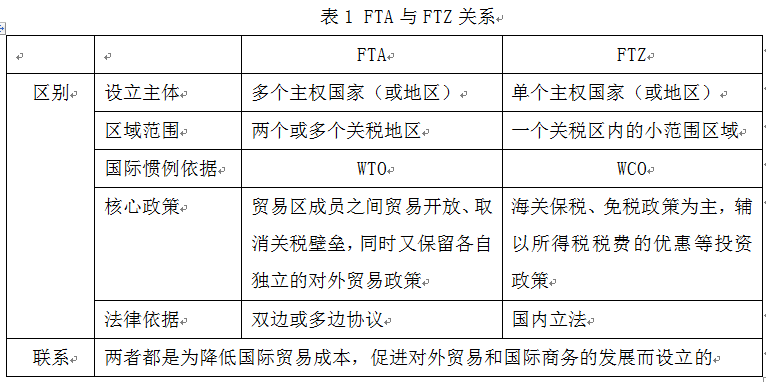自贸区下的知识产权保护毕业论文
2020-07-05 17:40:36
摘 要
自贸区是指拥有独立主权的国家或地区在关境之外,专门划出区域,免除外国商品的关税,使其能够自由进出。随着经济全球化和区域经济一体化以及跨国公司的大量出现,WTO下属的成员国和内部其它国家实现了自由贸易,在此背景下产生的自贸区成为该国经济与世界经济对接的桥梁。自贸区的设立有利于促进贸易自由化和便利化,却带来知识产权保护的隐患。知识产权不仅是发展的战略性资源,也是竞争力的核心要素,如果纵容侵权行为,会使一国失去吸引投资的竞争力,更会阻碍开放型经济制度的建设和完善。目前我国已经建成11个自贸区,在“境内关外”的新型监管模式下,自贸区内出现了平行进口、过境货物贸易和贴牌加工等特殊问题。我国知识产权保护水平与发达国家之间存在差距,在竞争中往往处于劣势地位,无法充分分享自贸区贸易所带来的利益。因此,我国自贸区作为全球贸易的重要节点,需完善原有的发展和管理模式,应对侵权挑战,增强国际竞争力。
关键词:我国FTZ自贸区 知识产权 发展问题 保护措施
Intellectual Property Protection under the Free Trade Zone
Abstract
The free trade zone, outside the state of the sovereign state or region, draws out specific areas to permit the free import of foreign goods. With the accelerating course of economic globalization and regional economic integration and the emergence of a large quantity of multinational corporations, member states of the WTO have basically established free trade relations with other countries concerned, and the free trade zones have subsequently emerged and developed, building a solid bridge between a country's economy and the international economy. The establishment of the Free Trade Zone is conducive to trade liberalization and facilitation, but brings the hidden dangers of intellectual property protection.Intellectual property is not only the strategic resource of development, but also the core element of competitiveness. If the free trade zone is allowed to become a "safe haven" for intellectual property infringement, not only will a country lose its competitiveness to attract investment from all sides, but it will also hinder the construction and improvement of an open economic system. At present, 11 free trade zones have been set up in China. Under the new supervision mode of "inside and outside customs", parallel import, transit goods trade and label processing have occurred in the free trade zones , which has caused some special problems. Due to the gap of intellectual property protection level between China and developed countries and regions, China is often in a disadvantaged position and cannot fully share the benefits of free trade zone trade. Therefore, as an important node of global trade, China's free trade zones are expected to continuously improve their original development and management model, in order to meet the challenges of intellectual property rights infringement, enhance their competitiveness in international trade and achieve further benefits.
Key words:Free trade zone of China; Intellectual property; Developing problems; Protective procedures
目 录
摘 要 I
ABSTRACT II
第一章 自贸区与知识产权保护的关系 1
1.1自贸区内涵 1
1.2自贸区与知识产权保护的关系 1
1.2.1知识产权保护是自贸区发展的重要环节 1
1.2.2自贸区下的贸易投资便利化易引发知识产权侵权问题 1
第二章 自贸区下知识产权的保护现状 3
2.1行政管理体制与执法体制不健全 3
2.2尚未形成多元化的纠纷解决机制 3
2.3对知识产权保护的新领域探索不足 4
第三章 自贸区新型监管模式下我国知识产权保护问题描述 6
3.1平行进口涉及的知识产权侵权问题 6
3.1.1平行进口内涵及表现形式 6
3.1.2平行进口涉及的知识产权侵权问题分析 6
3.2过境货物贸易带来的知识产权问题分析 7
3.2.1过境货物的概念由来 7
3.2.2过境货物贸易带来的知识产权问题 7
3.3贴牌加工涉及的知识产权问题分析 8
3.3.1贴牌加工的定义及类型 8
3.3.2贴牌加工涉及的知识产权问题分析 8
第四章 自贸区下我国知识产权保护的措施探讨 10
4.1 建立各知识产权部门之间的信息共享机制 10
4.2加大财政投入,着力培养知识产权专业人才 10
4.3建立多元化的纠纷解决机制 11
4.4完善知识产权保护相关法律法规 12
4.5保护网络空间知识产权 12
结 语 13
参考文献 14
第一章 自贸区与知识产权保护的关系
1.1自贸区内涵
自贸区分为两种类型:一种是广义的自由贸易区(FTA),是指两个及以上国家或关税区签订自贸协定,在WTO最惠国待遇的基础上,进一步开放市场,分阶段取消绝大部分过境货物的关税和非关税壁垒,改善缔约方之间的服务业市场准入条件及经济贸易歧视化待遇,有效开放各方投资的通道,进而推动商品、服务以及资金、技术等诸多生产要素的自由化流动,实现各方的互利共赢与共同发展;另一种是狭义的自由贸易区,即一个主权国家境内的自由贸易园区(Free Trade Zone,简称FTZ),主要是指基于推动自由贸易发展的初衷,一个国家根据其自身的政治、经济和地理环境等因素而自主设立的、并以特殊经济政策为导向的贸易园区。[1]本文主要研究我国FTZ知识产权保护问题。

课题毕业论文、开题报告、任务书、外文翻译、程序设计、图纸设计等资料可联系客服协助查找。



